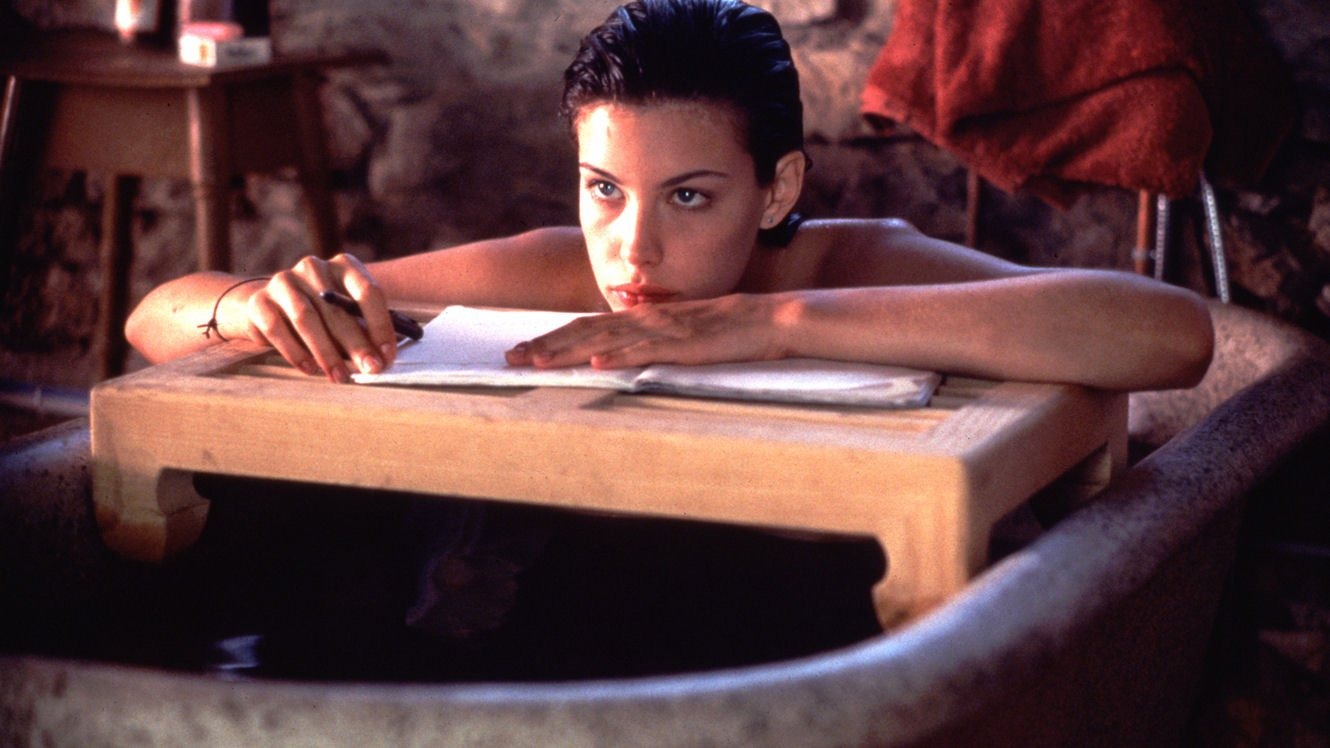In 1996 Bernardo Bertolucci released Stealing Beauty, arguably one of cinema’s most golden presentations of emerging sexuality. Even if you haven’t seen it, trust me, you know it. A 19-year-old Liv Tyler stars as Lucy Harmon, an American teen who travels to Tuscany following her mother’s suicide.
22 years later, the film is still embedded in our consciousness — if not our Instagram feeds — for its meditation on lost love, family, grief, ageing and a wrap dress that single-handedly launched countless thotty fashion labels. But above all, it’s a movie about sex, self-discovery, and a deeply refreshing look at female virginity.
Lucy begins the film wanting several things: to understand herself and her family, but also to reconnect with a boy she met years ago. She’s set on giving her virginity to him. The 90s would come to be a decade partially defined by films about teen sexuality. Usually explored in awkward comedies, where sweaty awkward boys stumbled through attempts to get laid. Young women were obstacles to be conquered then ignored. But in Stealing Beauty virginity is central — but not mythically prized. Lucy has no fear, no anxiety. She doesn’t see her virginity as something to lose. Rather, sex is something she wants to do. She is looking forward to it, planning it meticulously to occur on her own terms, with someone she long ago selected for herself.
Sure it doesn’t run exactly as she expects, but it still works out in her favour. It’s a story of female sexuality with low stakes and warm rewards.
In the years after Stealing Beauty was released, female purity and virtue became a pop culture obsession. Mainstream media debated and theorised on the virginities of pop princesses. American Beauty was lauded for the iconic imagery of a teenage cheerleader naked among rose petals. And several websites literally counted down to the Olsen Twins’ 18th birthday, desperate for them to become legal.
But the film bucked this trend. Long before Chewing Gum and The To Do List played with the tropes of a quaking female virgin, Lucy was selecting a spot underneath the olive trees to become a sexual being.
It would be remiss of course to not point out that this is still a Bertolucci film, and the director’s problematic relationship with actresses casts a shadow. But it’s one lit by the presence of Susan Minot, the film’s co-writer (with Bertolucci). Speaking to Vogue she explained: “I really wanted this character to not be like many female characters, who know just what they’re about, who are able to manipulate people with their youth and beauty.”
She went on to add, “Girls have some power, but they have no idea how much effect they’re having on people. They’re full of questions in their own mind. That’s a real girl.”
There is no doubt that this gentle and thoughtful sexual discovery is framed by the gazes of older men. But Lucy comes across as less of a prize, and more of a painful memory. While the film is about youth and beauty, it’s also about the danger of nostalgia. And warns against trying to hold onto our past selves too tightly.
Watching Stealing Beauty as a teen, Lucy’s experience felt undeniably central. Rewatching it now, it’s the adults who stand out. These bourgeois grown ups long for the past. They talk about it, stare at Lucy and want to be like her. They are so sure things were better that they can’t see the paradise around them.
Even Lucy is lost in the past, longing for a lost summer, a lost love, a half-formed memory, the fading shape of her mother. Only when she stops trying to recreate something she remembers as perfect does she see what’s in front of her, and discover that what she misses might never have actually existed. Maybe there is a lesson there. One that involves not gazing lovingly at 90s movies anymore. Or at least, not writing about them.
